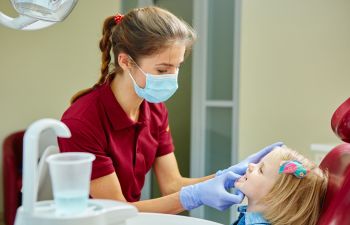Navigating Dental Emergencies: Top 5 Types and How to Stay Prepared
Dental emergencies can happen when you least expect them, and knowing how to respond is crucial for your oral health and overall well-being. In this blog post, we'll explore the top 5 kinds of dental emergencies and injuries, offer guidance on how to avoid them, and provide tips on caring for your teeth. Understanding the importance of prompt action during a dental emergency is essential for every patient.
Top 5 Kinds of Dental Emergencies
1. Toothache
The Problem: Severe toothaches can be caused by various issues, including tooth decay, infections, or abscesses.
What to Do:
- Rinse your mouth with warm water.
- Use dental floss to remove any trapped debris.
- If the pain persists, contact your dentist for an emergency appointment.
2. Cracked or Fractured Tooth
The Problem: Accidents or biting on hard objects can lead to cracked or fractured teeth.
What to Do:
- Rinse your mouth with warm water.
- Apply a cold compress to reduce swelling.
- Contact your dentist immediately for an emergency visit.
3. Knocked-Out Tooth (Avulsed Tooth)
The Problem: Knocked-out teeth can occur due to sports injuries, accidents, or falls.
What to Do:
- Handle the tooth by the crown (top) and avoid touching the root.
- Rinse the tooth gently with milk or saline solution, if dirty.
- Attempt to place the tooth back into its socket, if possible.
- If re-implantation is not feasible, store the tooth in milk or a tooth preservation product.
- Seek immediate dental care within 30 minutes for the best chance of saving the tooth.
4. Lost Filling or Crown
The Problem: Over time, dental fillings or crowns may become loose or dislodged.
What to Do:
- Keep the filling or crown if possible.
- Apply dental cement, toothpaste, or a dental adhesive to temporarily reattach the crown or filling.
- Schedule an appointment with your dentist to replace or re-cement the restoration.
5. Bitten Lip or Tongue
The Problem: Accidentally biting your lip or tongue can lead to injuries and bleeding.
What to Do:
- Clean the area gently with water.
- Apply a cold compress to reduce swelling.
- If the bleeding doesn't stop or the injury is severe, seek medical attention.
Avoiding Dental Emergencies
While it's impossible to predict or prevent all dental emergencies, there are several steps you can take to reduce your risk:
- Maintain Good Oral Hygiene: Regular brushing, flossing, and dental check-ups help prevent dental issues that can lead to emergencies.
- Wear Protective Gear: If you participate in sports, wear a mouthguard to protect your teeth from injuries.
- Avoid Biting Hard Objects: Refrain from using your teeth to open bottles, packages, or bite on hard objects.
- Be Mindful of Chewing: Avoid chewing ice, hard candies, and other foods that can lead to cracked or fractured teeth.
- Use Scissors, Not Teeth: Always use scissors to cut things instead of your teeth.
- Avoid Chewing on Inedible Objects: Chewing on pens, pencils, or other inedible objects can lead to dental injuries.
Caring for Your Teeth
Proactive care for your teeth can help reduce the likelihood of dental emergencies:
- Regular Dental Visits: Routine dental check-ups allow your dentist to identify and address potential issues before they become emergencies.
- Proper Oral Hygiene: Brush your teeth at least twice a day, floss daily, and use mouthwash as recommended by your dentist.
- Wear a Mouthguard: If you participate in contact sports or grind your teeth at night, consider wearing a mouthguard to protect your teeth.
- Maintain a Balanced Diet: A diet rich in calcium and low in sugar can contribute to better oral health.
- Avoid Smoking and Excessive Alcohol Consumption: These habits can have a negative impact on your oral health.
- Know Your Emergency Plan: Be aware of what to do in a dental emergency and have your dentist's contact information readily available.
A Sobering Statistic:
The American Dental Association reports that dental emergencies are the most common reason children are admitted to the hospital. It's crucial for both adults and children to be prepared for dental emergencies.
Stay Prepared, Stay Safe
Being informed and proactive is the key to managing dental emergencies effectively. At Sweetpea Smiles Pediatric Dentistry in Sugar Land, TX, we're here to help you navigate any dental emergency and provide the care you need.
Stay prepared and protect your oral health. Book your dental appointment with us today.
Our team is dedicated to your oral health, from routine check-ups to emergency care. Don't wait until a dental emergency strikes – take proactive steps to protect your smile.



